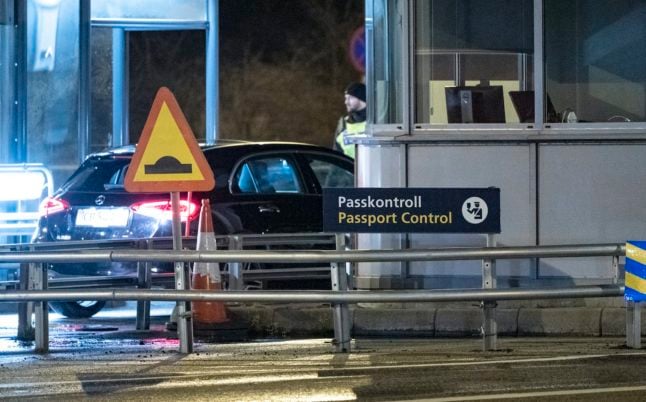This guide, presented in partnership with the UK Government, tells you what you need to do in four crucial areas: residency, healthcare, travel and using your driving licence in Sweden.
Get the official UK government advice on living in Sweden now that the transition period has ended
Residency
In November 2020, Sweden’s parliament voted in favour of a key post-Brexit rights bill which would see British citizens and their families granted a new residence status. Those with permanent residency under Swedish national law (i.e. a PUT) do not need to apply, but may do so.
The bill said that if you were legally resident in Sweden before 1 January 2021, your rights will be protected by the Withdrawal Agreement. However, If you were here under EU law you must apply for the new residency permit (uppehållsstatus) by 30 September 2021 to secure your rights and access to services.
The UK Ambassador in Sweden, Judith Gough, states, “I urge all British citizens in Sweden to check their residence status now, and apply for a new permit, if needed. The new status introduced by the Swedish Government will allow British citizens living in Sweden under EU rules to protect and maintain their rights”.
Before you apply, ensure you carefully read the guidance on supporting documents.
You should also read the Swedish Migration Agency’s guidance on residency for UK nationals in Sweden, as well as its guidance on the rights of third country national family members.
You do not need to be physically present in Sweden at the time of application, as long as you can prove you had right of residence before December 31st 2020, and continue to live here
One advantage of applying for Swedish residency earlier rather than later is that once your application is submitted, you will receive a letter of confirmation, which can be used to prove your right to live in Sweden – for example if returning to the country after travelling overseas.
During the period that British applicants are waiting on a residency decision, they have the same rights as EU citizens and can continue to live and work in Sweden, as long as they moved here before December 31st.
Once an application has been approved, it is necessary to visit one of the Migration Agency’s Service Centres to have fingerprints and a photo taken before the residence card can be issued.
Check out the UK Government’s website to find out how you can stay in Sweden as a UK National

Healthcare
You have to be registered as a Swedish resident to access Swedish state healthcare. Even then, you may still have to pay for some medical care.
There are three ways UK nationals usually access the Swedish healthcare system:
- register as a resident and then register for healthcare
- use a European health insurance card (EHIC) or a UK global health insurance card (GHIC) for temporary stays
- register a UK-issued S1 form with one of the insurance funds
Anyone registered as a resident in Sweden can register for state healthcare. This applies if you’re employed, self-employed or not working.
You can also register your dependants for healthcare at the same time as you.
You may be entitled to a Swedish EHIC for travel, including visits to the UK, and you might have the right to apply for a UK S1 if you start drawing a UK state pension.
If you’ve been sent to work temporarily in Sweden by a UK company as a “posted” or “detached” worker, and you’re not a registered resident, you can access healthcare in Sweden using an EHIC, GHIC or S1 form.
First, however, your employer must register you at the Swedish Work Environment Authority.
You must then register your S1 form with the Swedish tax authority (Skatteverket) and the social insurance agency (Försäkringskassan)
Travel
You live in an EU country, so crossing borders is no big deal, right? Now that the UK has left the EU and free movement no longer applies, you’ll face some new rules on travel within Europe in 2021. Doing your homework now could save you a lot of trouble later.
From this year on, you need six months left on your passport to travel within Europe (be aware that any extra months you had added to your passport’s validity when renewing it early last time won’t count towards this).
You can check your passport’s validity here to know for sure if you need to renew it before booking a trip. This new rule applies to children’s passports, as well as adults, and applies for travel to most European countries.
Driving licence validity
You can drive in Sweden on your UK driving licence. If you’re living in Sweden, check the government website for information on driving license exchange.
Keeping Informed
You can find out more information by visiting the Living in Sweden guide on GOV.UK, sign up for emails with the latest official UK government updates about these topics in Sweden. The Embassy in Sweden regularly engages with British community groups, and shares information on their social media pages.
You can find regular updates, answers to frequently asked questions and more information on the British Embassy Facebook page.



 Please whitelist us to continue reading.
Please whitelist us to continue reading.
People following this advice are likely to be pleased with the award of a residency card from Migrationsverket. They seem to do a great job and the process goes smoothly. After a while you then learn that being resident does not put you on the “Population Register”. It is the job of Skatteverket to do that under a different process. Obtaining healthcare as described in this article is not so simple. The S1 form issued by NHS in the UK is only given to those already drawing a state pension. EHIC/GHIC are correctly described for a travelling visit less than 90 days or for students. That leaves the rest of us who have to sign up to Private Comprehensive Health Insurance. Swedish insurance companies do not provide such insurance so you end up with one of the Global companies who will give you the level of coverage required for upwards of £3000/year. Only when you have that cover can you hope that Skatteverket will put you on the register so you can get healthcare, although that is not a given either. Not being on the Population Register may also affect your ability to get a bank account (Bank ID), other local services and so on. In short, Residency is only part of the steps needed to live normally in Sweden and the rules of Migrationsverket and Skatteverket are not the same, nor do they seemingly work in a connected manner.
What is your source for stating the S-1 is only available to those already drawing a state pension? Thank you
Hi. NHS link here as that’s who issues the S1 form. Section on Moving to Europe, second from last para. https://www.nhs.uk/using-the-nhs/healthcare-abroad/moving-abroad/planning-your-healthcare/
Hop this helps and if you find alternatives then do post.